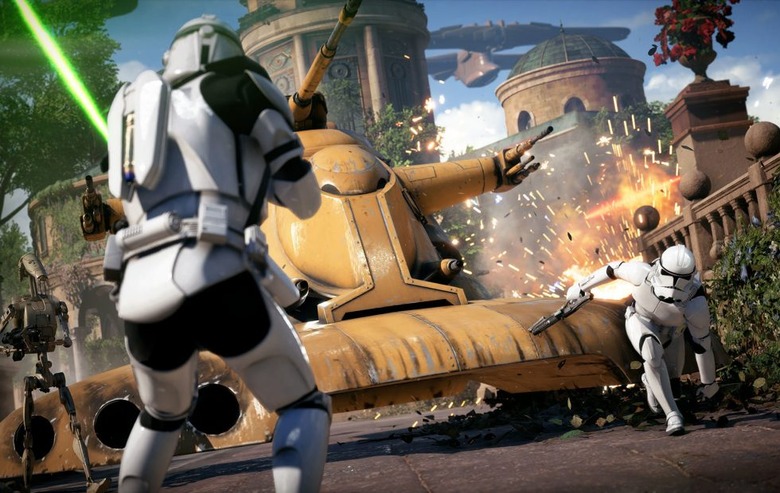It's Time To Stop Pre-Ordering Video Games (Again)
Another controversy swept the gaming industry recently. If you missed it, I'm not sure how, but just in case you did, here's a quick rundown: Electronic Arts and DICE crossed a line for many gamers yet again, tying Star Wars: Battlefront 2's progression system to a loot box feature that is unquestionably too greedy. The response from players was quick and brutal, causing EA's PR team to go into crisis mode.
After a showing on Reddit that did absolutely nothing to help EA's cause, the massive games publisher quickly backtracked on its loot box system. Microtransactions were removed from the game until EA can retool them, with all progression occurring in-game in the meantime. Still, gamers persisted. They began refunding their pre-orders in droves, because all of this went down before the game was even officially released.
This seems like a really good time to remind you that in this day and age, there is little to no reason to pre-order a video game. I said the same thing back when it became clear that No Man's Sky wasn't everything it was being marketed as, and I'll continue to say it whenever a greedy publisher puts easy profits before the fans it relies on to stay solvent.
Electronic Arts has proven time and time again that it is one of those publishers. 2015's Battlefront, while not as egregious as its successor, still wasn't anything to get excited about. Content was so thin compared to the Battlefront games of the mid-2000s that many players put it down after just a few weeks. Those who hung around were nickle-and-dimed by an extensive line-up of DLC. That should have been more than enough reason to avoid pre-ordering Battlefront 2, but then we can look to more recent EA games like FIFA and Madden that really go overboard with microtransactions as well.

Let's zoom out for a moment, though. Even if you're sure that you're going to absolutely love a game, what benefit is there to pre-ordering? I was reasonably confident that I was going to enjoy Super Mario Odyssey, and it turns out I did. I loved it, in fact, and I think it's one of the best games of the year. But even then, there would have been little reason for me to pre-order the game, because I knew that I'd be able to get a copy of it on launch day.
That's what pre-orders are ostensibly for, right? To make sure that you can secure your copy for release day? Maybe that made sense back before the era of internet-connected consoles when we only had the option of buying physical copies and gaming as a legitimate entertainment industry was still coming into its own, but that isn't a risk these days. If you want a copy of a game on release day, you will be able to find one.
Instead, publishers have tried to show us that pre-orders are still a necessary thing through paltry bonuses that usually don't do anything aside from show other players that you bought the game sight unseen. If there's one thing you take away from this article, it should be this idea: when you place a pre-order, the only thing you're paying the publisher for is being good at marketing. We should be paying publishers for putting together a great game that's worth our time, not for making cool cinematic trailers and getting up on stage at E3 to spew buzzword after buzzword.
There's a lot wrong with the triple-A games industry at the moment. Annual releases put name recognition over quality, we're paying the same $60 for increasingly less content, and publishers are diving further down the microtransaction rabbit hole, implementing systems designed to squeeze as much extra money out of gamers as possible. Triple-A games simply aren't worth it anymore – not when I can hop on Steam and purchase a well-crafted, fully-featured game for $15 and run it on any computer built in the last 10 years.
One of the ways to change this is to stop pre-ordering video games. Stop paying for the promise of a game and resolve to only open your wallet when a publisher has proven that they're playing fair. Rewarding publishers ahead of time and then complaining about the product they deliver after they've got our money isn't going to cut it anymore. If we want the games industry to change, that change has to begin with us at the consumer level – otherwise we'll just continue to get what our blind faith in big publishers deserves.
